John Howard’s sway: the former PM speaks out on the voice
The Coalition’s elder statesman says there should be no free vote for MPs.
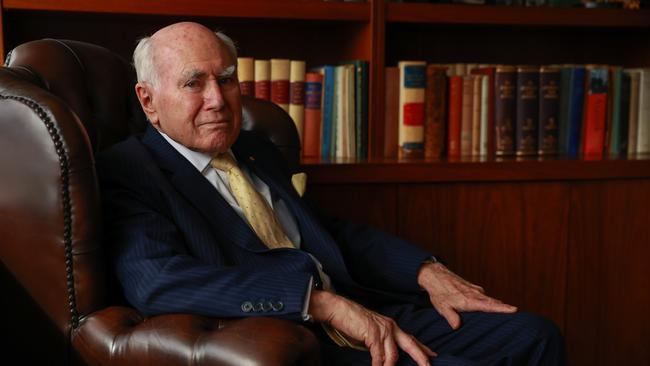
“I would counsel the Coalition against having a free vote,” Howard told Inquirer in an exclusive interview that highlights the complexities ahead for the referendum, with growing signs of scepticism and resistance from the Coalition side of politics.
Howard said: “I think there are substantial arguments against the voice. In fairness to Peter Dutton, I want to give him the opportunity to formulate a position before I do in detail. I think what the Coalition should do is what it’s doing at the moment – that is, waiting until they get more information. But the Labor government is not big on explanations about the voice.
“Among people I see as part of the Liberal base I don’t find any reaction to the voice other than one of hostility. I haven’t found anybody who accepts the proposition that you ought just to give it a go. Not everyone talks about it. But those who talk about it are critical. And those in turn who are critical – when it comes to having the voice in legislation – they might see that as a possible compromise. But I don’t see the government willing to do that.”
Referring to the attitude among the Liberal and Coalition base, Howard said: “My sense is that people are suspicious of the idea of a voice. I don’t get the impression the voice is something that is going to unite the country the way the 1967 referendum did because that was just so palpably fair, whereas people are suspicious of the voice. People saw the 1967 referendum as a demonstration of our good faith. But people see the voice as creating potential divisions.”
Howard’s comments come amid growing awareness the Coalition will not back the voice in a partyroom decision. There has been speculation the opposition might allow a free position for MPs – in a repeat of the 1999 republican debate – but there will be resistance to that notion as well.
Fundamental to this debate is the attitude of Indigenous MPs and Indigenous peoples. The two Indigenous senators from the Coalition side, Jacinta Price and Kerrynne Liddle, have expressed serious reservations about the voice.
Indigenous leader Warren Mundine has branded the voice an “elitist” concept not supported by a lot of Indigenous people “on the ground” and has said: “We do not need this in the Constitution.”
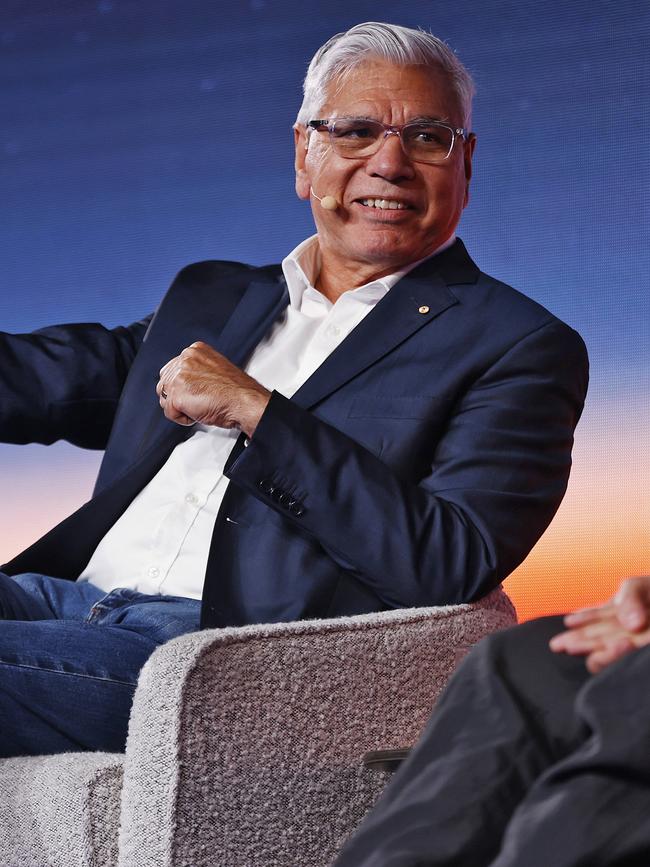
Mundine told Inquirer he has the funds to run a campaign against the voice that will feature Indigenous peoples in television advertising.
“Everywhere I go in Australia I am asked the same question by Aboriginal people,” Mundine said. “They want to know ‘what is the voice?’ They say ‘why should we be supporting this voice when nobody can tell us what it means?’
“The voice is an elitist concept. It has support at elite levels, Aboriginals, academics, people in organisations, business and corporations. But I’m taking my campaign to ordinary people. We’ve got the money. We’ll be going out and filming Aboriginal people for our television campaigns saying they don’t know what the voice is and saying that they don’t want it.”
This raises a new prospect – just as the 1999 referendum saw republicans divided with popular election republicans opposing the referendum, the voice now faces a situation where it will be opposed by a section of the Indigenous community. The more this is apparent and publicised, the more the Coalition parties will shun supporting the voice.
There will be, however, strong support from the under-40s segment of the population, the Labor Party, social media and from corporations and community organisations. The tag “elitist” is the usual kiss of death for referendums but this seems to embody the strategy based on high-profile third-party endorsements from the corporate, sporting and celebrity worlds.
The prospect of bipartisanship is forlorn. If history is any guide, that will make a successful referendum a daunting task. Since Federation, Labor has proposed 25 referendums for 24 defeats.
Howard emphasised the reality that advocates of the voice play down – that it will be assessed against the strong contingent of Aboriginal MPs now sitting in the federal parliament. How will this interaction be conducted? “This is very relevant,” Howard said. “Pride might be too strong a word, but there’s a sense of public satisfaction that we have Indigenous people in the parliament. That’s good, they are in different parties, there’s a wide range of views.”
Howard’s interview with Inquirer terminates any hopes that he might have lent support to the voice given his initial 2007 backing for the principle of Indigenous recognition in the Constitution after advocacy from Noel Pearson. Frank Brennan, searching for a consensus bridge, had floated recently the prospect of a Howard-Pearson agreement on the voice – but that won’t happen.
In the interview, Howard was unequivocal in rejecting any notion of a free vote. He said: “I allowed and promoted a conscience vote on the republic but the republic was a different issue to the voice. The republic issue is far more fundamental to the structure of our Constitution.”
Howard recalled Joe Hockey’s decision in 2009 when, facing the prospect of becoming Liberal leader, he backed the idea of a free vote on Kevin Rudd’s emission trading scheme (running on a ticket with Peter Dutton as deputy).
“When I saw he was proposing a free vote, I rang Hockey,” Howard said. “I said to him ‘You can’t do this, I don’t think you can do this’. In the end it probably cost Hockey the leadership.”
In an interview that focused on Liberal Party principles and leadership decisions, Howard expressed the view that climate change politics would evolve yet again given escalating energy prices, and offered Josh Frydenberg his complete endorsement for having the wisdom not to challenge Scott Morrison for the leadership in late 2021.
Howard was anxious to debunk revisionist historical theories that the former government might have been saved had Frydenberg possessed the courage to strike against Morrison. “That’s an absurd proposition,” Howard said. “The entire idea that Josh should have challenged and that somehow this would have saved the government from electoral defeat is just absurd. If Frydenberg had challenged in my view he would not have become leader.”
Howard said: “I say that as somebody who wrote in my latest book that he was the standout performer in the government. If he had been encouraged to run for the leadership, he was right to reject those entreaties. Any challenge would have only further weakened the government and perhaps meant the Coalition would have lost by even more seats. I don’t give any credence to the view that Frydenberg should have challenged.”
Liberal sources said the idea that Peter Dutton would have sat on his hands while Frydenberg challenged is fatuous, given the previous leadership contest had been Morrison-Dutton with Morrison just winning 45-40 votes. Bringing on a leadership contest would have produced a protracted train wreck.
“Despite his problems, Morrison was still highly regarded at the time (late 2021),” Howard said. The government’s standing in late 2021 was superior to its plight in May when the election was held, with Morrison’s fortunes nosediving dramatically from mid-January when the Omicron Covid variant exploded.
“The circumstances in which you successfully change a leader on the eve of an election are where there’s either total consent or a willingness on the part of the incumbent to stand aside,” Howard said. Obviously, neither of those conditions applied at the time.
On energy and climate, Howard said: “At some point in the future, renewables might be the cheapest form of energy partly aided by subsidies, but rising energy prices are starting to bite in Australia now as they are in Europe. There’s an incongruity here. Rising energy prices are set against the belief that in the long run – when we’re all dead – renewables will dominate the scene and be much cheaper.
“The Labor Party won’t be allowed to forget its pledge to cut power prices and it shouldn’t be allowed to forget it. You can’t make such an explicit promise and then make excuses for it.
“I think the politics of this issue are far from settled.”
At the global level, Howard said China and India would remain “large devourers of fossil fuels” because their goal was to lift the living standards of their people. While the market was favouring renewables, “a lot will depend on the politics of the US” and whether or not the Republican Party could regroup and prevail with a different climate policy to that of President Joe Biden.
Howard was sceptical of the net-zero policy that Morrison took to the 2022 election. “There’s no doubt the policy the Coalition government took to Glasgow removed a major point of difference between the parties,” Howard said. “I think that weakened the Morrison government’s capacity to argue a climate change case against Labor.”
He highlighted what he called the “incongruity” of the Australian debate on gas. “The most important decision state governments can make is to lift all prohibitions in the extraction of gas,” Howard said. “We’ve got reserves of gas. Why don’t we allow more gas to be provided? The debate about domestic reservation is secondary to the debate about supply and availability. We won’t allow more gas to be pumped into the market but we’ll complain about the price going up, because the supply doesn’t equal the demand.”
On Donald Trump, Howard said: “I am sure he’s the reason the Republicans flopped in the mid-terms. It was a terrible result.” He said he had regarded Trump as “unfit” ever since his behaviour after the last presidential election. It was time for the Republicans to move beyond Trump.
On Indigenous recognition, Howard said his position was essentially the same as in 2007. He was still in favour of altering the Constitution in relation to the preamble, but acknowledged that Indigenous leaders such as Pearson saw this as inadequate. Howard’s remarks on the voice highlight the tactical dilemma facing its advocates: do they seek to engage and persuade conservative Australians? That would imply making concessions from the proposal and, so far, there is no sign of such willingness. Howard’s remarks about the attitude of the Coalition base underline the challenge facing Dutton as Liberal leader: he needs to be cognisant of the scepticism of core Coalition supporters as well as support for the voice from the wider community.
Conservatives are alert to the reason offered by the Turnbull cabinet when it opposed the voice: an in-principle rejection of a racial-based body being incorporated into the Constitution. While Malcolm Turnbull now supports the voice, he said at the time our democracy was based on all citizens “having equal civic rights” and the voice was “inconsistent with this fundamental principle”.
In his interview, Mundine told Inquirer Aboriginal people were dubious about another advisory body. “We already have Indigenous voices,” Mundine said. “And they’re in the parliament. When you talk with Aboriginal people, they want practical action that delivers jobs, services, economic development and education. We already have plenty of peak Aboriginal bodies, organisations, committees reporting to government and land councils.”


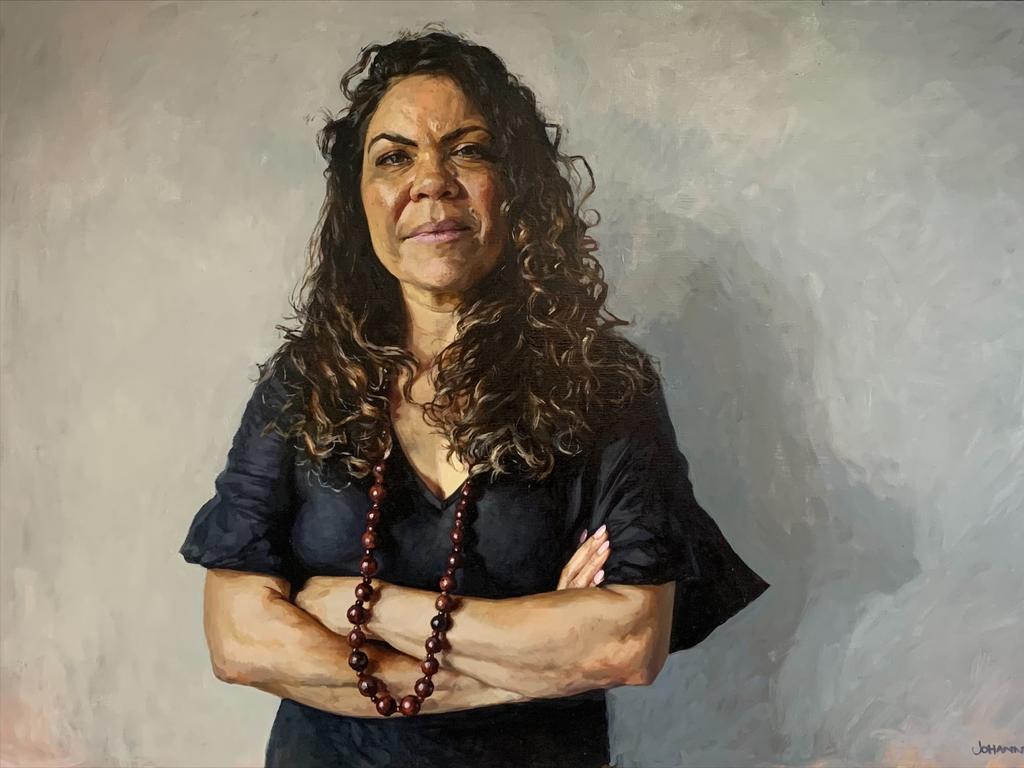
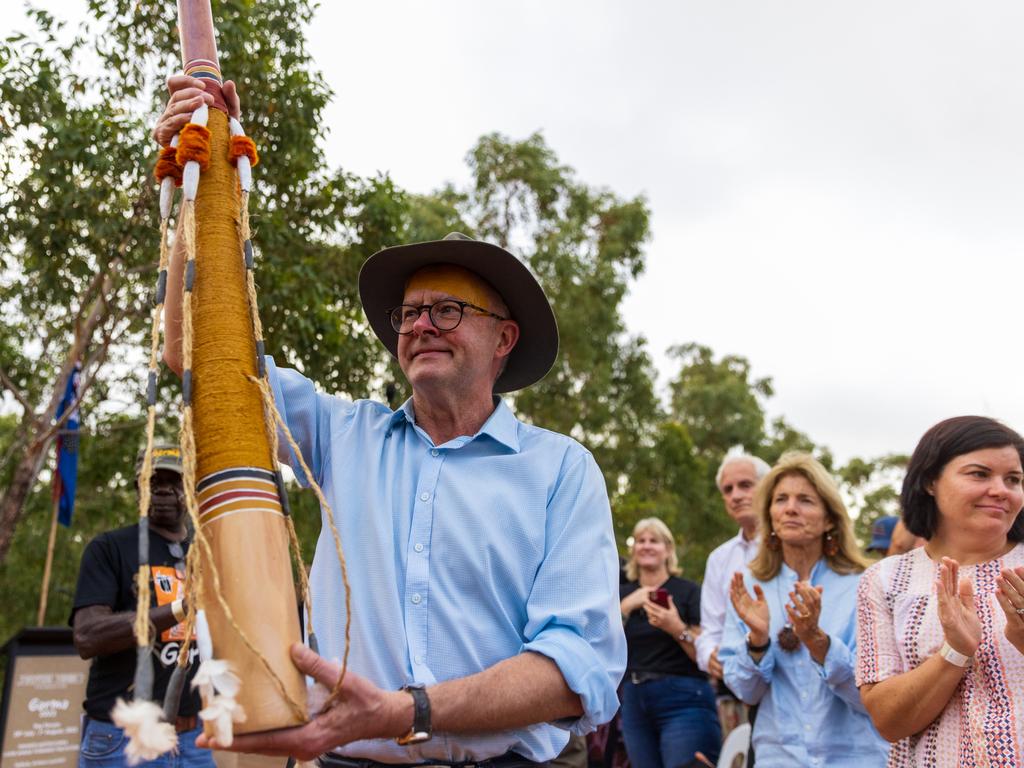
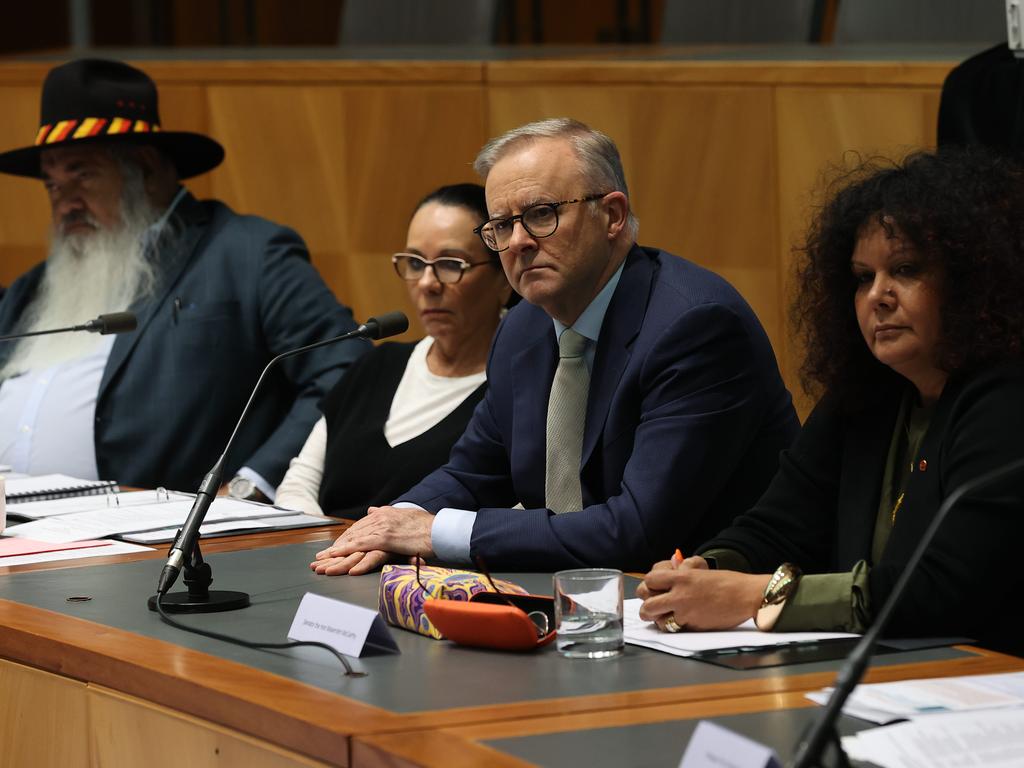
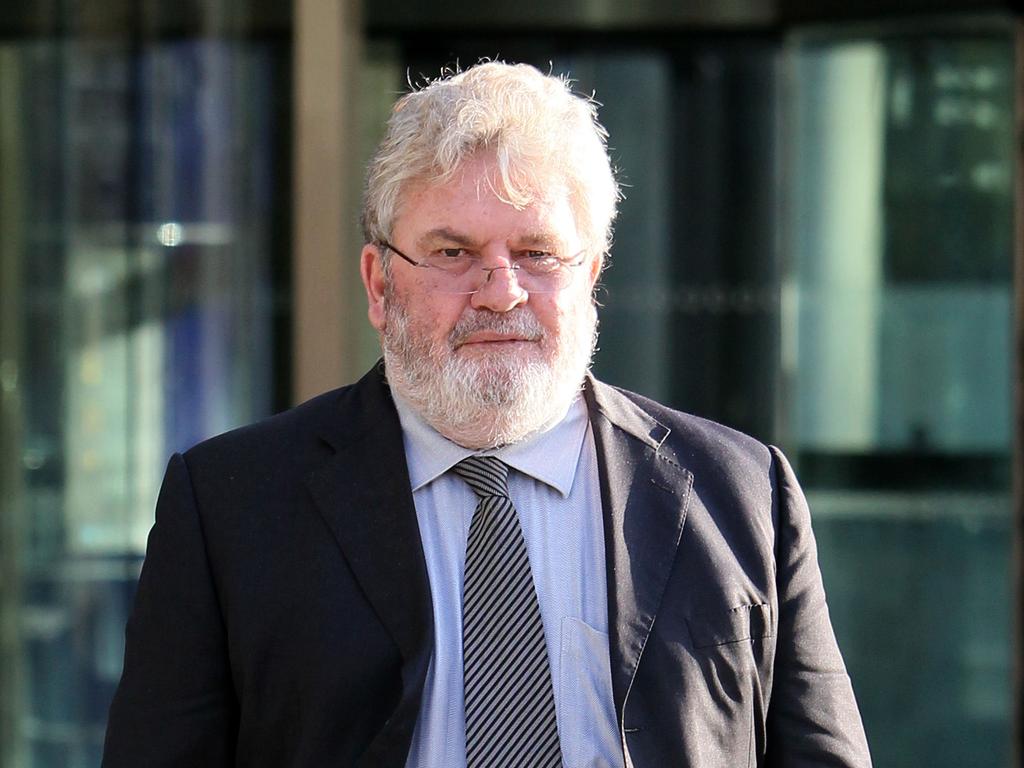
Former prime minister John Howard has said it would be “unwise” and a political mistake for the Liberal and National parties to offer their MPs a free vote or conscience stance on the Albanese government’s proposed constitutional referendum on the voice to parliament.